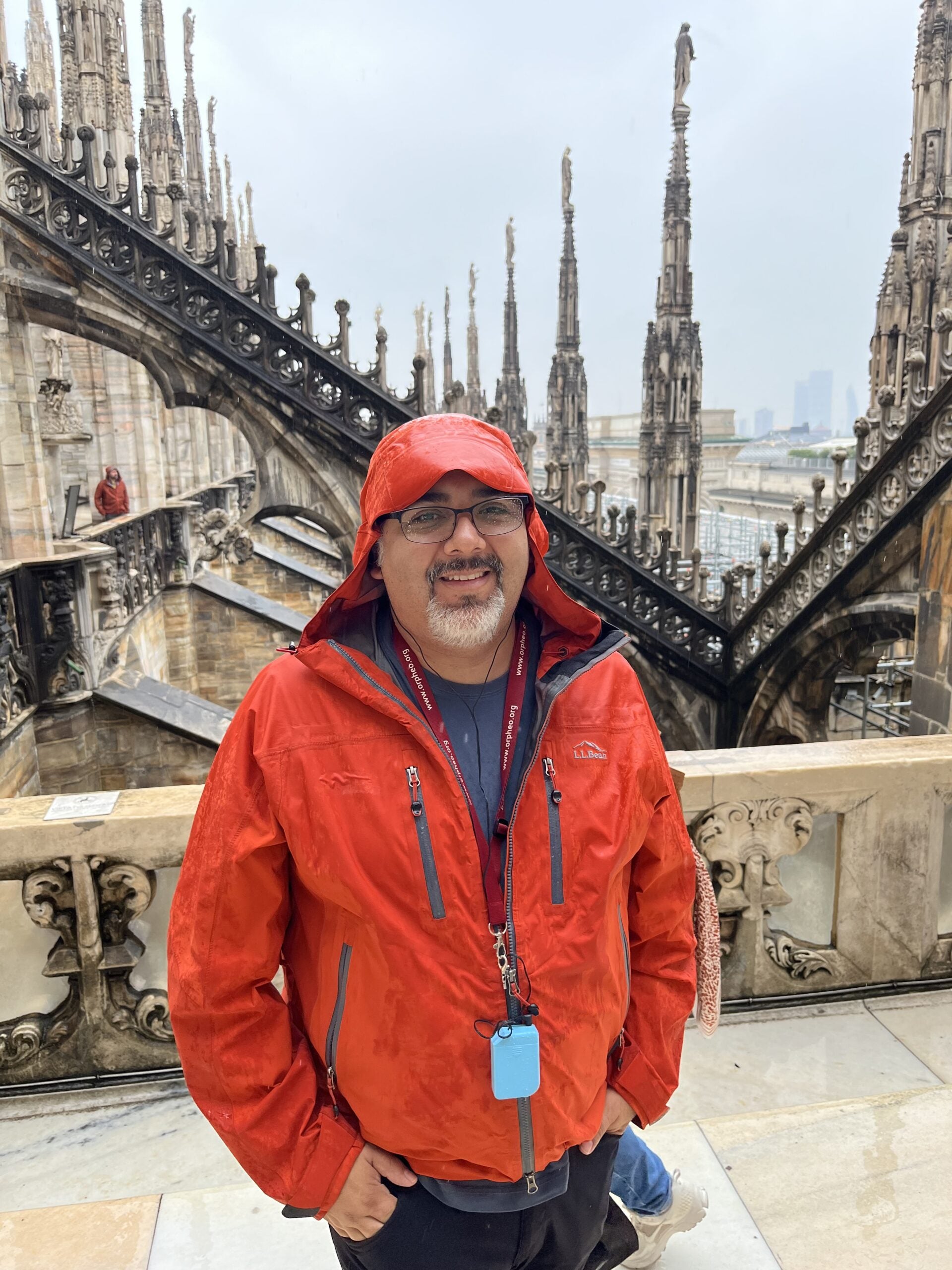By Siera Tuttle
David Estrada, a professor in the Micron School of Materials Science and Engineering, attended the International Astronautical Congress in Rome, Italy, hosted by the International Astronautical Federation. This year’s event focused on “Responsible Space for Sustainability,” and drew a record-breaking crowd of over 11,200 attendees. It marked the 75th year and demonstrated the global commitment to using space technology to benefit humanity while preserving our planet.

During this year’s congress, Estrada organized a session with NASA’s Fathi Karouia, which attracted a large audience interested in the commercialization of space and in-space manufacturing.
Estrada affirmed the importance of international collaboration in achieving ambitious space goals. He is excited to continue his work with NASA and other international partners. Estrada worked with NASA through their In-Space Manufacturing Program and On Demand Manufacturing of Electronics program since 2017. The program works to develop the materials and processes needed to enable in-space manufacturing of electronics on ISS and Gateway in support of Artemis missions.
“It was exciting to see the latest developments in the field and learn about the challenges and opportunities for in-space manufacturing. Space is hard. If humankind is going to succeed in returning to the surface of the moon and taking crewed missions to Mars, it is going to take a lot of international collaboration from industry, academia, and government institutions to realize such missions.” –David Estrada
Karouia and Estrada plan to organize another in-space manufacturing symposium at the 2025 International Astronautical Congress in Sydney, Australia. They aim to bring together researchers from various disciplines, including electronics, materials science, biology and physics, to discuss the latest breakthroughs and future directions.
“The ability to organize an international symposium like this can only come from the hard work of our staff and students who help build our reputation as leaders in the field,” Estrada said. “I’d like to thank those in the Advanced Nanomaterials and Manufacturing Lab, the Center for Advanced Energy Studies, and the Micron School of Materials Science and Engineering who have helped position me to co-organize the in-space manufacturing symposium at the International Astronautical Congress.”
Estrada believes Boise State can make substantial contributions to space exploration by leveraging the expertise of its faculty and students. Areas of potential impact include developing robust microelectronics for extreme environments, studying the effects of space environments on biology, and utilizing lunar resources for construction.
“It would be great to showcase the innovations coming out of the blue and take them out of this world.” –Estrada
The International Astronautical Federation, established in 1951, is a global organization dedicated to space exploration and development. With a membership of over 500 entities from 77 countries, the federation unites the world’s leading space agencies, companies and research institutions.